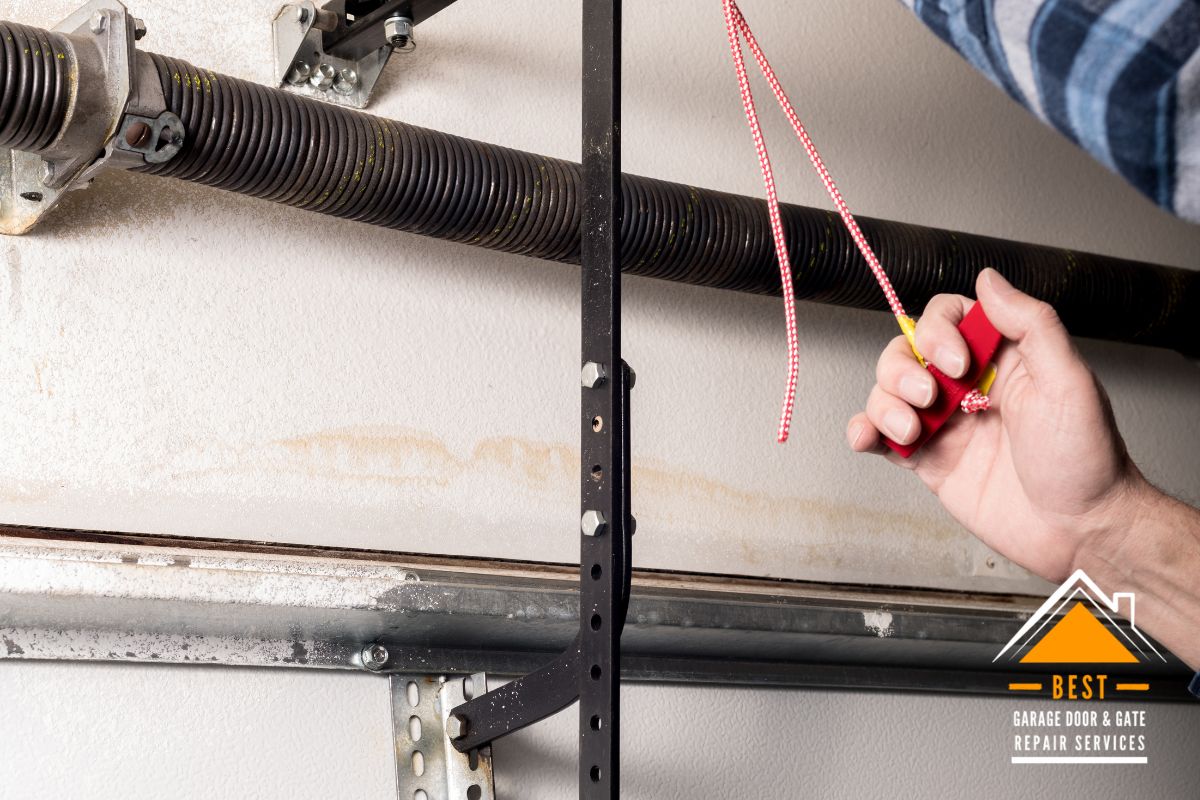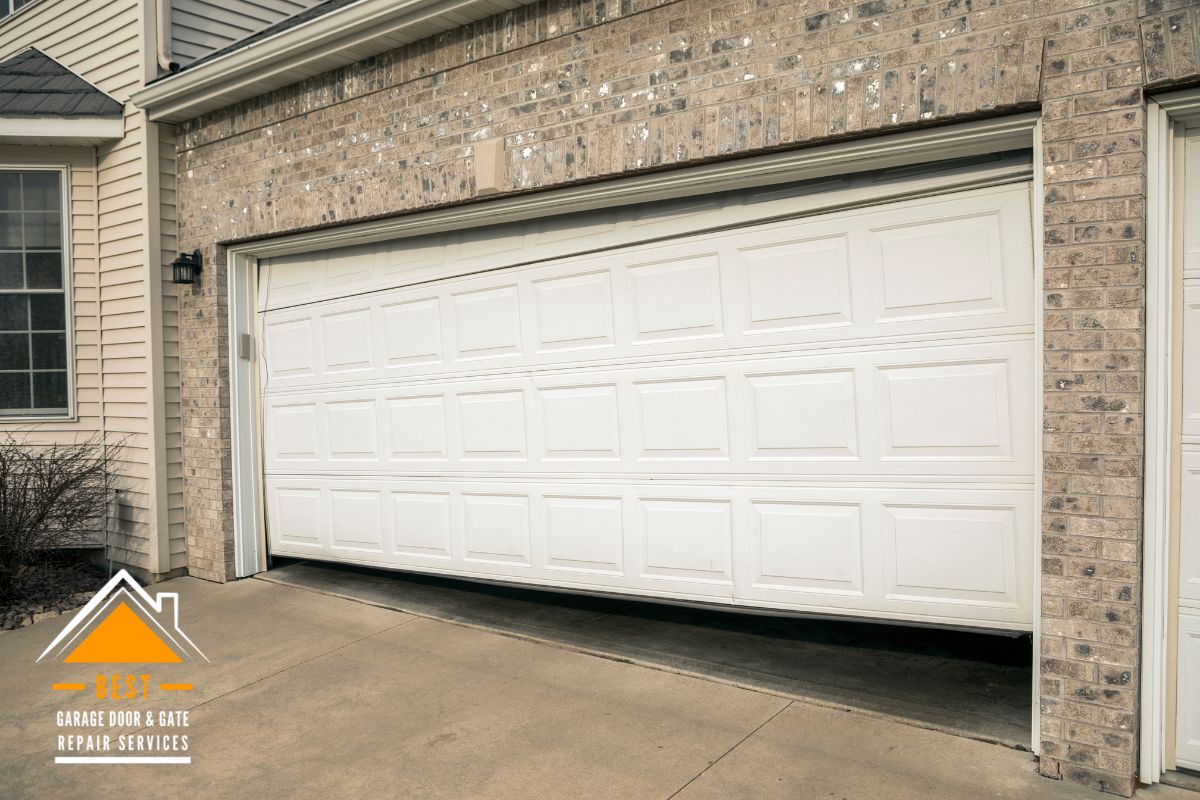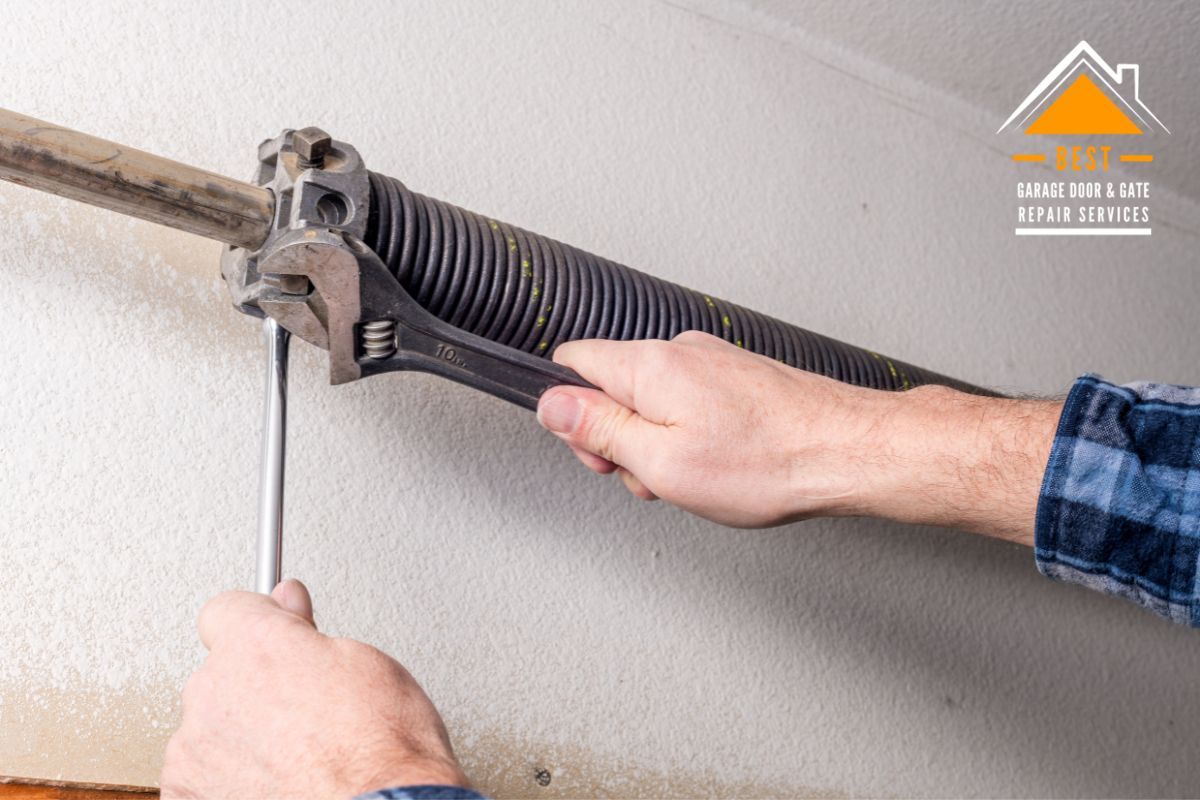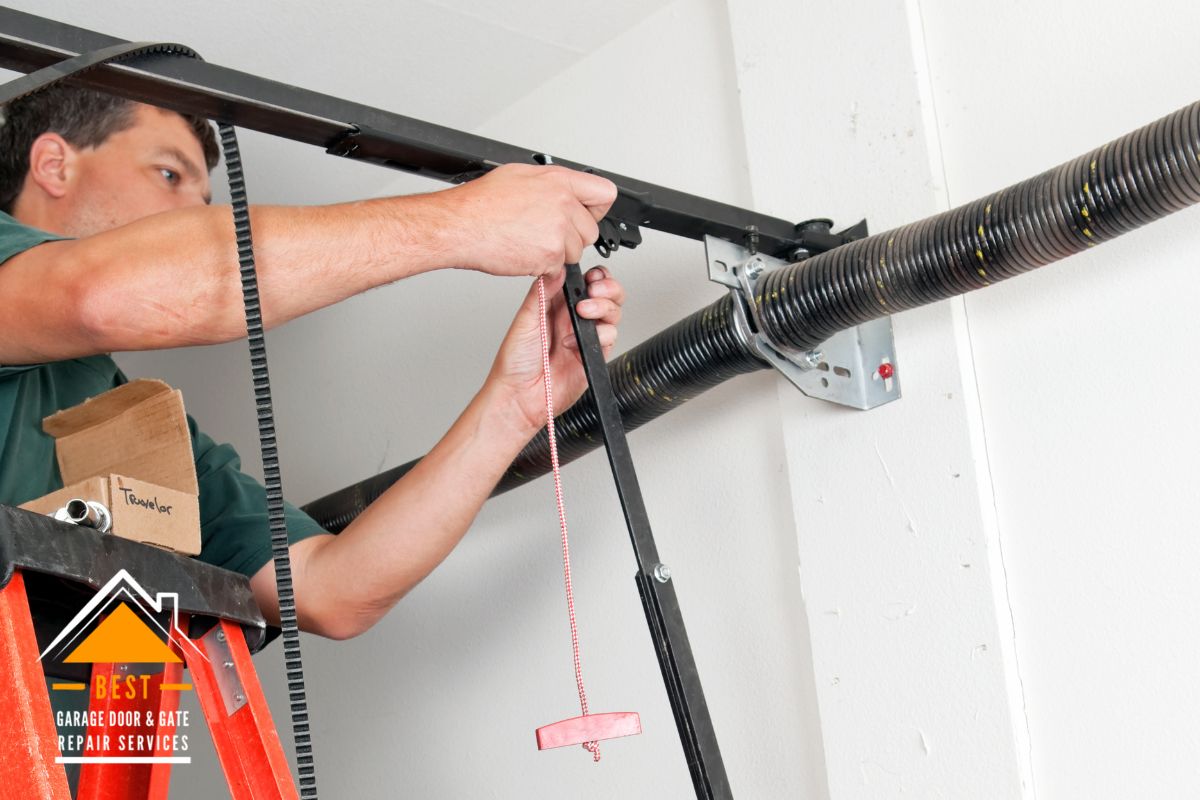Consider the following scenario: You are running late, so you dash to your vehicle to start going as quickly as possible. It doesn’t matter how often you try to open your garage door. It refuses. That’s a real bummer, particularly when you have no clue what’s causing the problem behind your garage door.
Spring failure is the most common cause of Malfunctioning Garage Doors. The vast majority of the time, you may rely on the services of a skilled garage door spring repair specialist.
In this essay, we’ll go through some of the various reasons why springs fail.
Table of Contents
How Long Are Garage Door Springs Supposed To Last?
A spring’s lifespan is determined by the number of times it is used. When your garage door opens and shuts, it is counted as a single cycle. Between six and ten years, the typical spring will complete 10,000 cycles.
Garage door cycles are rising as more and more houses have connected garages, and more people are utilizing the garage to access their homes. The longevity of your garage door springs might be reduced if you exceed their cycle rating.

How Long Are Garage Door Springs Supposed To Last
Major Causes Of A Broken Garage Door Spring
1. The Springs are a Powerhouse of Energy.
The springs are responsible for most heavy lifting, whether you have a manual or an automated garage door. Because of the springs, even a door weighing more than 100 kg may be lifted by a normal person.
The majority of individuals can raise it with only one arm. This is all made possible because of the hefty lifting performed by the springs.
2. The Wear and Tear of everyday life
When a garage door spring fails or breaks, this is the most common cause. Torsion springs that are correctly fitted and maintained are expected to survive around 10,000 cycles on average. We say that when the garage door travels up and down in a cycle. The average person goes through about 730 cycles yearly, even if they leave and return twice daily.
The average life expectancy of a garage door spring is around 13 12 years. As a result, most people open and reopen the door numerous times a day and run many cycles, reducing the life span to significantly less than 13 12. One year is more than enough time to complete 10,000 cycles!

Major Causes Of A Broken Garage Door Spring
3. Rust Buildup
Rust on garage door springs may cause them to break more quickly and limit their lifespan. Rust reduces the strength of the coil by causing friction. Every few months, spray down the coil with a lubricant to maintain it clean and rust-free, and you’ll avoid spring failure due to corrosion.
4. Incorrect Springs Used
Your garage door springs will most likely break sooner rather than later if you use the wrong length or size of wire for them. Two torsion springs are required on each side for properly maintained and designed garage doors.
Some garage door installers utilize a single long spring to cover the whole of the door. While this may be best for doors that are smaller or lighter, it is not suitable for doors that are typical in size. Two springs should be used to share the weight burden of opening and shutting the garage door. This is because using a single spring shortens its lifespan and significantly damages it if it breaks.
It is not uncommon for the door track to get clogged with dirt, filth, and debris. When this debris accumulates to an unacceptable amount, it has the potential to obstruct the roller, which will result in the door being stuck. It is impossible for the spring to either release or retains energy while the door is jammed.
This causes the springs to lose their capacity to carry a “charge,” as it were, because of the enervating impact on them. Once again, they politely deny your request to open the door or are slow and don’t fully open it.
If your garage door isn’t reacting with the same energy and vitality as before, you probably don’t need to have your garage door opener repaired; instead, you need to have a spring or spring changed.

Poorly-Maintained
5. Poorly-Maintained
Your garage door motor will likely survive longer if it is correctly balanced via regular maintenance. On the other hand, things might go awry when it comes to routine maintenance. Every year, you need a professional to inspect your door and ensure it is safe because springs are more prone to break in the cold and schedule regular maintenance.
Attempting to repair your garage door’s springs on your own might be risky since the springs are under a lot of stress. When it comes to servicing, adjusting, or replacing your garage door springs, it is always best to leave it to a professional.
Bottom Line
Spring failure is a typical cause of garage door malfunction, but it is also a problem that a professional may easily remedy. There are many reasons the spring may break, some of which may be prevented.


Leave A Comment